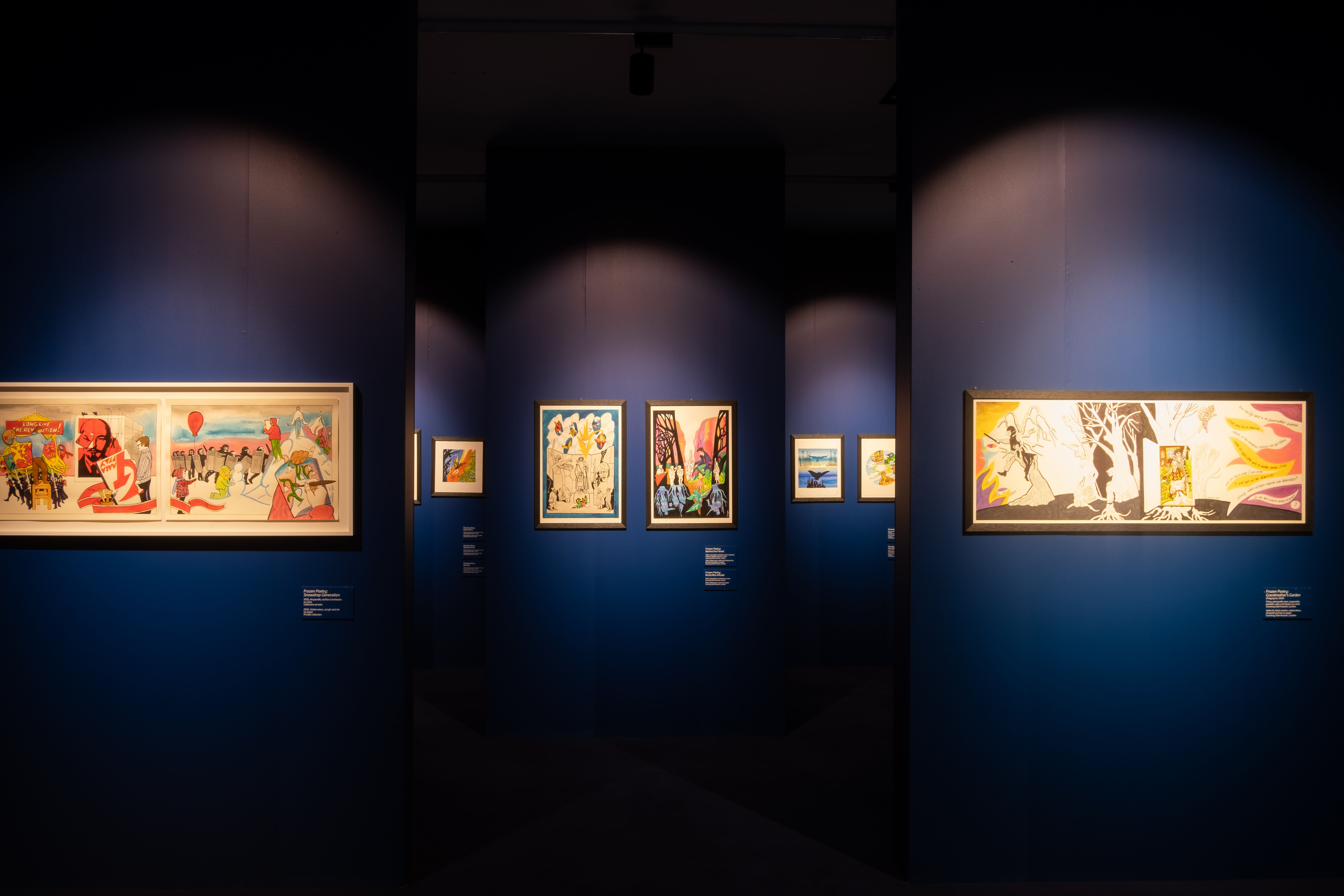8 January 2023 A full century after the founding of the Soviet Union, the title of dissident Russian artist Victoria Lomasko’s first solo exhibition in Italy—presented as part of Brescia’s Peace Festival—feels particularly apt: It takes courage to call oneself “The Last Soviet Artist” nowadays. Whereas artists of her father’s generation scorned Soviet realism, which for them embodied state propaganda, fortysomethings like Lomasko see this more figurative visual vocabulary as a means of countering the rarefied abstraction of much Russian art today, which offers little scope for voicing dissent.

Curator Elettra Stamboulis conceived the show as a journey divided up into thematic segments. Autobiographical allusions abound in Lomasko’s oneiric watercolor drawings, which are sharply outlined in black ink and presented on panels. Motifs like the snowdrop and the butterfly stand in for the artist, as well as for both her own and a later, seemingly carefree generation that is nonetheless steeped in and dwarfed by the heroic imaginary of the Soviet past. In the monumental mural The Changing of Seasons (all works cited 2022), which Lomasko painted while in exile following the Russian invasion of Ukraine, the artist portrays herself brush in hand, bearing witness to yet another transformation for her nation—from the “snowdrop generation” to the warmongering and carnage that have give the impression of having turned back the clock.
Few and far between in the watercolors, textual elements figure prominently in the mostly (if not exclusively) black-and-white graphic reportage drawings. These are often accompanied by incisive vignettes, as in the case of the travelogue series charting the societal changes taking place in the multifaith and ethnically diverse former Soviet republics and other far-flung corners of the Russian empire. Five Steps pairs each in a sequence of large-scale paintings with a poignant text written by the artist. Like five acts in a miniature drama or a morality play, they make palpable the lived experience of “Isolation,” “Escape,” “Exile,” “Shame,” and “Humanity.”

